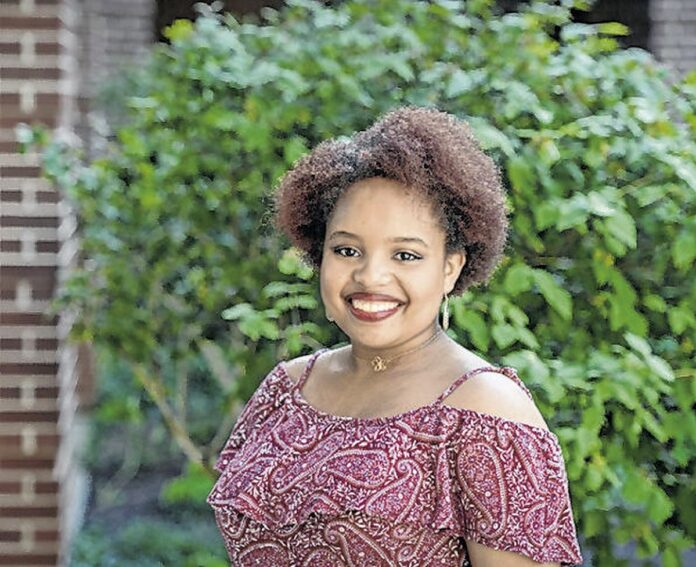A seed was planted after a Franklin College student was caught on video expressing hate for minority groups and using racial slurs.
The seed sprouted into a study on racial slurs that uncovered differences in how people of color and white people perceive slurs.
After the video was released students of all colors were talking about race and who does and does not have a right to say certain words.
Those conversations around campus, in her classes and at Black Student Union meetings got Alexis Cheatham thinking. She saw that some white students would say slurs in private, but would not say it when around people of color. On the other hand, Black students were divided about whether the word should be reclaimed or left in the past.
So, the class of 2021 graduate decided to focus on racial slurs for a psychology study dubbed “How Comfortable Are You? The Effects of Social Dominance and Race Biases.”
Cheatham was one of only four students around the country to earn a research award from the Psychology Division of the Council on Undergraduate Research to complete the study. She also presented her findings at the Midwestern Psychological Association in April.
She worked with Ryan Rush, associate professor of psychology, on the study, which was completed via an online study platform where 80 participants of different racial groups from all over the country were paid $2 to participate.
Participants were given vignettes presented in two ways, portraying racial slurs in association with a Black or white researcher.
The study found that participants were more comfortable when a Black person said a racial slur but were more uncomfortable when a white person did. This firms up the idea that many Franklin College students had regarding slurs: that white people shouldn’t say them.
“We interpreted that as white people making the reason why the word is bad more prominent,” she said.
Political party was also a somewhat reliable indicator of comfortability with slurs.
“Not to stereotype political status, but people who are more Republican are more likely to be more conservative and have more privilege,” Cheatham said. “That could suggest that people who have more privilege think they have more of a right (to say it) and less of a reason to be uncomfortable about saying it.”
Another finding is that people were more comfortable with racial slurs if they have had more exposure to them over the course of their lifetime, according to the study.
People were also more comfortable with racial slurs when they came from a friend rather than a stranger, according to the study.
The more exposure a person has had to racial slurs, the more likely they are to believe they can occur in different settings, such as on a college campus, according to the study.
Cheatham said her study doesn’t establish a clear link between racism and people who are OK with racial slurs; more research would be needed for that. The link does exist in real-life experiences, from her perspective.
In her next steps after college, she hopes to work with underrepresented populations as a social worker and volunteer at nonprofits that focus on policy change and social justice. She is headed to University of Wisconsin – Milwaukee to pursue a master’s degree in social work and work toward her counselor’s license.
After spending the last four years in Franklin, the Indianapolis-native sees many opportunities for the city and the college to make Black and other minority students feel more welcome.
On-campus she sees opportunities to educate both students and faculty about diversity annually to drive home that racism has no place at Franklin College, Cheatham said. Another way to support students of color is to hire more diverse teaching staff, she said.
“There has been some work but if the culture doesn’t shift, students will continue to be uncomfortable and they will just leave. It has happened in the past,” Cheatham said. “It will continue to happen.”
Off-campus and online racist encounters are somewhat common, especially since the Black Lives Matter movement woke some up to racial inequities, while others choose to pretend it doesn’t exist in Franklin, Cheatham said.
As racial inequality is studied more, Cheatham hopes people will consider information with an open mind and think critically about how to be a sincere ally to people of color.
“I get the stares. My friends have been called the n-word. When we did our Black Lives Matter protest somebody came with the Confederate flag,” Cheatham said. “People think in the city of Franklin that racism isn’t prominent or we should ignore it, but that isn’t true.”





